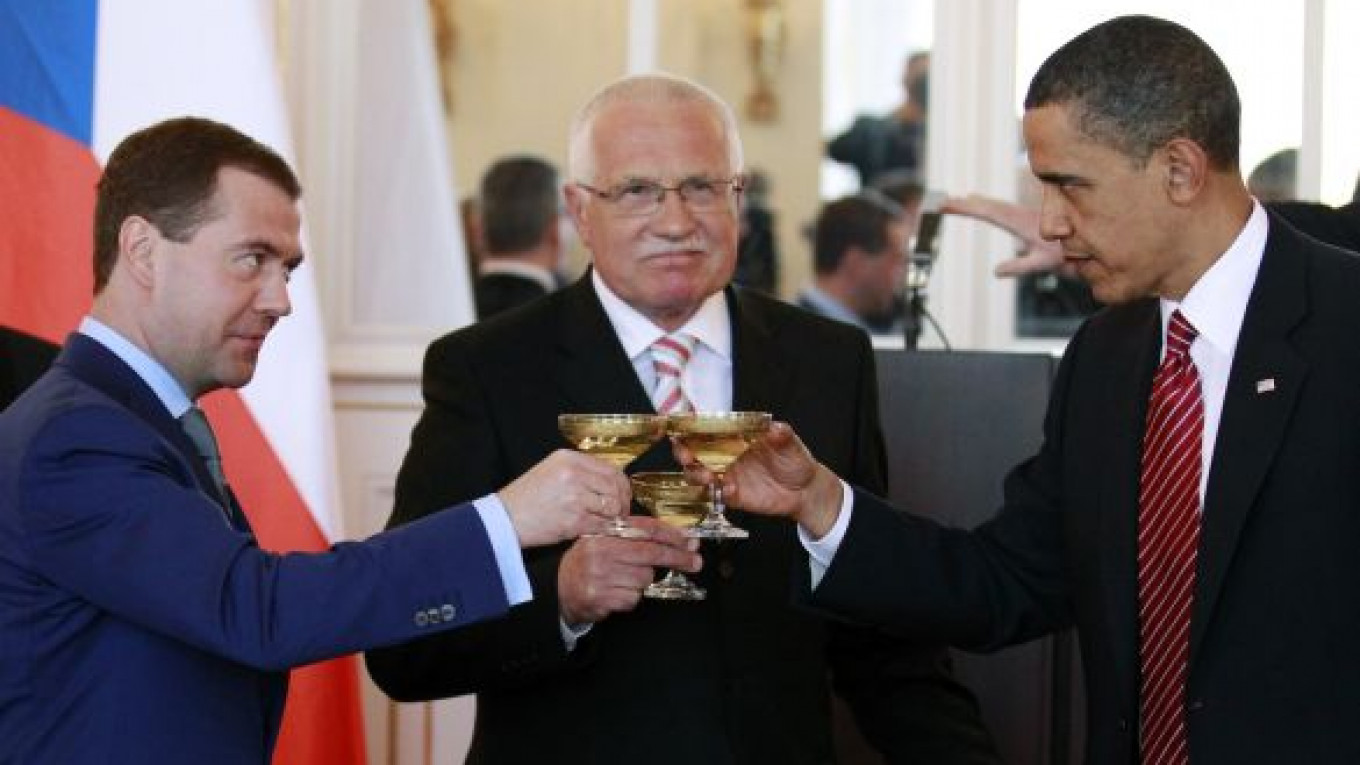WASHINGTON — The once-smooth path for U.S. Senate ratification of a major nuclear arms control agreement with Russia is looking a little dicier.
Conservatives opposing New START, a replacement for a Cold War-era treaty, are trying to make it an issue in November's congressional elections.
While they are unlikely to kill the agreement, they could force Democrats to delay a ratification vote until after the election. That could be damaging to U.S. President Barack Obama. A narrow victory after a lengthy, contentious debate could destroy his hopes for achieving more ambitious goals, including further reductions of nuclear weapons and ratification of a nuclear test ban treaty.
"A delayed ratification with a close vote would be a blow to U.S. leadership around the world," said Joseph Cirincione, president of the Ploughshares Fund, a foundation that advocates a world free of nuclear weapons. "People would doubt the president's ability to negotiate other agreements."
The administration still hopes to win approval for New START before the Senate begins its summer break in August. To do that would require the support of at least eight Republicans, along with all 57 Democratic and two independent senators to achieve the necessary two-thirds majority in the 100-member Senate.
The administration is expressing confidence, but so far only one Republican senator, Richard Lugar of Indiana, has announced his support.
Administration officials say they could wait until the "lame duck" session that takes place after November's election, but before new lawmakers are sworn in. The White House does not want to postpone a vote until next year because Republicans are expected to pick up seats in the election.
Obama and President Dmitry Medvedev signed the New START agreement in April. It would shrink the limit on strategic warheads to 1,550 for each country, down about a third from the current ceiling of 2,200. It also would make changes in the old treaty's procedures that allow both countries to inspect each other's arsenals and verify compliance.
An affiliate of the Heritage Foundation, a conservative think tank, has taken the lead in opposing the treaty. The Heritage Action for America, an advocacy group, has started a petition drive and may run political advertisements on the issue during the election season. It also is lobbying in the Senate.
Though arms control is hardly a major issue in a campaign season dominated by economic worries, the divisive political environment makes it difficult for Republicans to buck the conservative mainstream and hand Obama a victory that might be considered his top foreign policy achievement.
Tom Daschle, a former Democratic Senate majority leader, who supports the treaty, said Heritage's influence may explain why so many Republicans have been reticent about taking a stand.
"It is certainly serious enough to silence some Republican senators," he said.
He added that he expected enough Republicans eventually would come around for passage.
Heritage won some prominent support when a likely Republican presidential candidate, Mitt Romney, announced opposition to the treaty in a newspaper column this month.
Some Republicans say U.S. negotiators made too many concessions and the treaty does not establish adequate procedures for making sure that the two sides abide by its terms. They also fear that Russia could use the treaty to limit U.S. missile defense plans.
Senator Jon Kyl of Arizona and other Republicans are holding out support over another issue, insisting that the administration increase money available to maintain and improve existing nuclear warheads.
The administration appears willing to accommodate Republicans on that issue and has requested a 10 percent increase.
It has rejected criticism of the treaty, however, and has tried to win over Republicans by citing the support of some of the party's foreign policy luminaries, including former Secretaries of State Henry Kissinger and George Shultz and former President George W. Bush's national security adviser, Stephen Hadley.
The administration says Russia has strong incentives to abide by the treaty because the U.S. arsenal is technologically superior and the costs of maintaining large stockpiles are harder for Russia to bear.
The defeat of the treaty would damage Obama's efforts to repair U.S.-Russian relations and to rally international cooperation on eliminating nuclear weapons.
Administration officials say Republicans will ultimately come around because rejecting the treaty would leave the two countries dangerously uncertain about each other's arsenals. The authority to conduct inspections expired with the old START treaty last year.
"There is a simple question to ask: What is this, and what if we don't have the treaty?" said Undersecretary of State Ellen Tauscher, the State Department's top arms control official. "I think that the risk of not having this is significant."
A Message from The Moscow Times:
Dear readers,
We are facing unprecedented challenges. Russia's Prosecutor General's Office has designated The Moscow Times as an "undesirable" organization, criminalizing our work and putting our staff at risk of prosecution. This follows our earlier unjust labeling as a "foreign agent."
These actions are direct attempts to silence independent journalism in Russia. The authorities claim our work "discredits the decisions of the Russian leadership." We see things differently: we strive to provide accurate, unbiased reporting on Russia.
We, the journalists of The Moscow Times, refuse to be silenced. But to continue our work, we need your help.
Your support, no matter how small, makes a world of difference. If you can, please support us monthly starting from just $2. It's quick to set up, and every contribution makes a significant impact.
By supporting The Moscow Times, you're defending open, independent journalism in the face of repression. Thank you for standing with us.
Remind me later.






